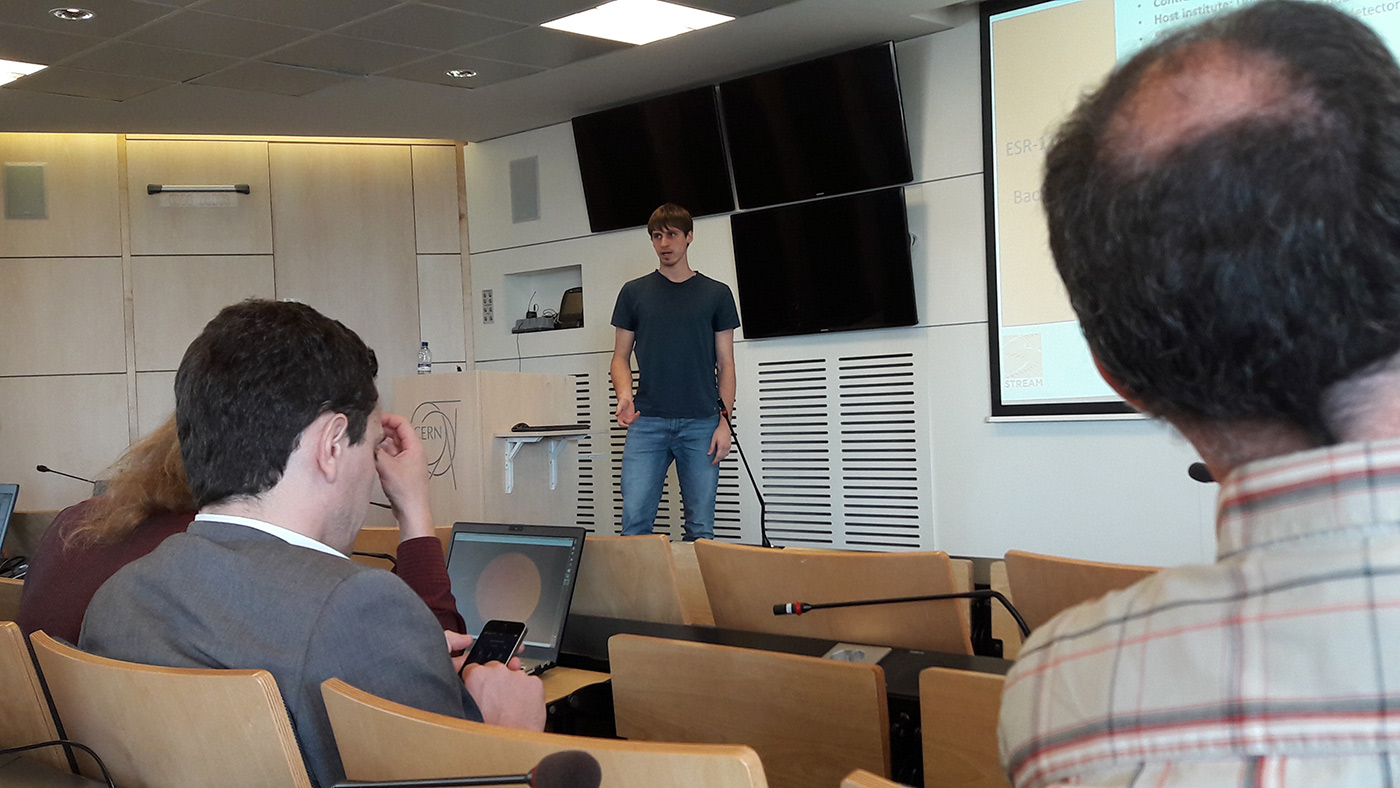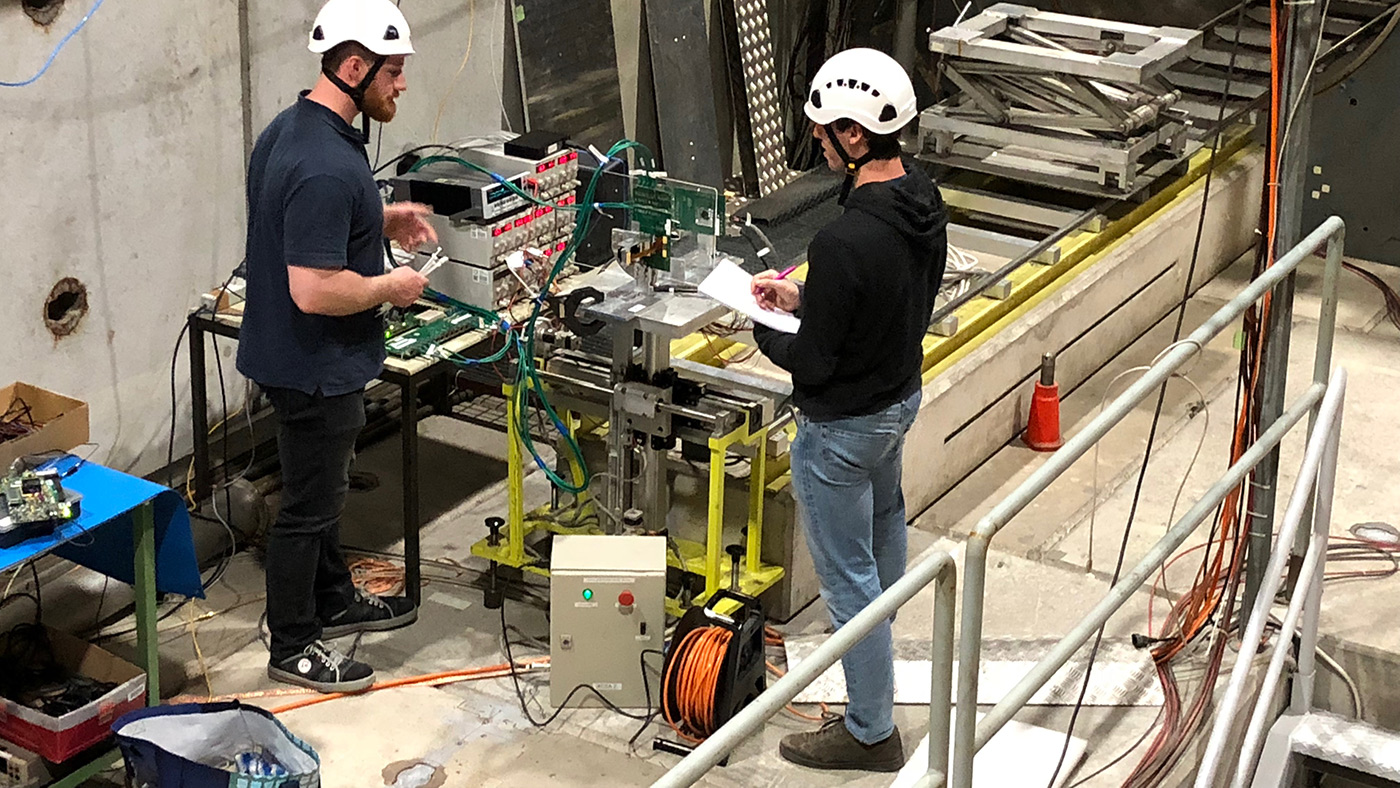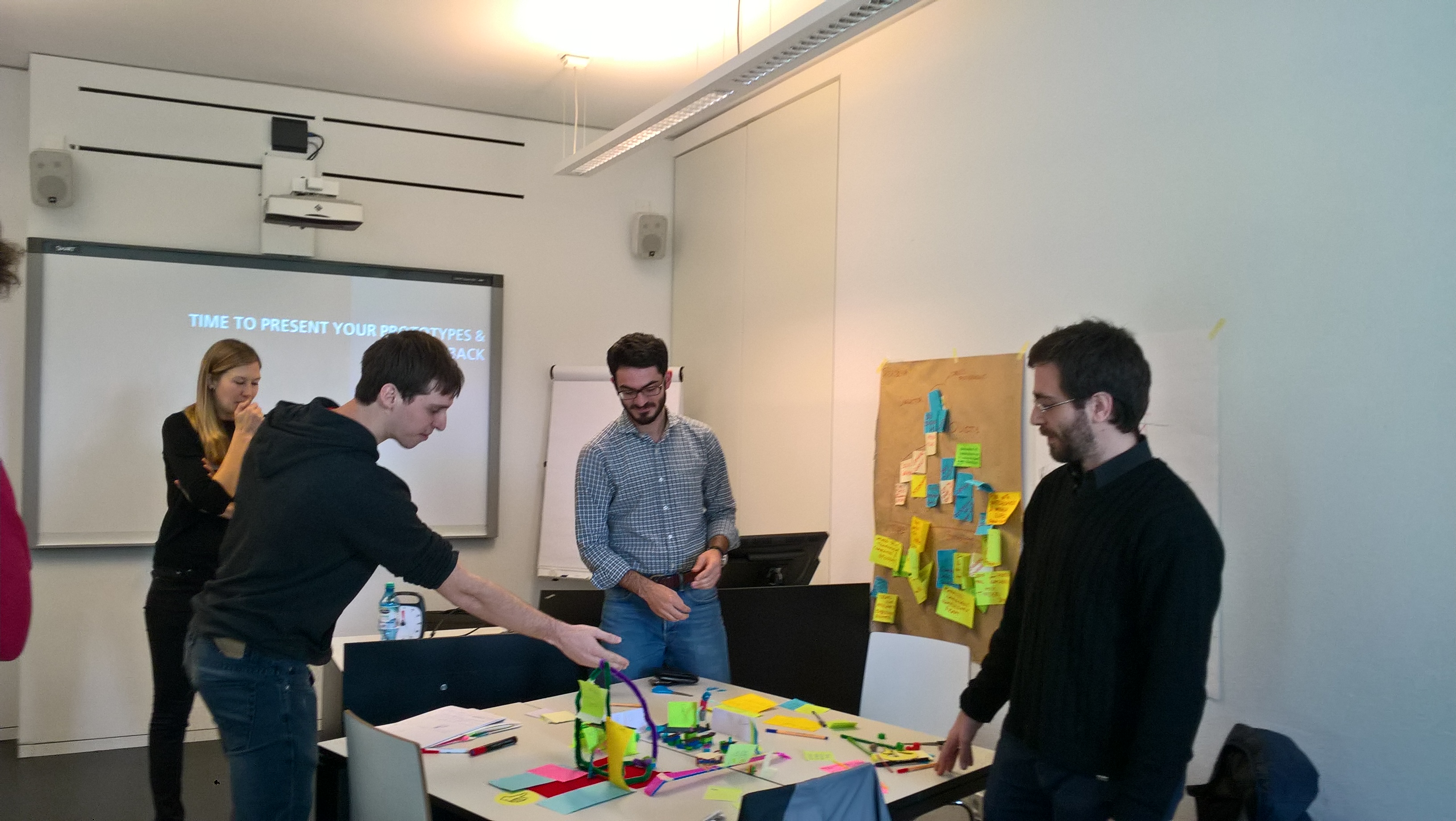



I am Lluis Simon Argemi, a physicist who is specializing on detectors for particle physics applications. I coursed a Bachelor's degree in physics and a Master Degree in High Energy Physics at the Universitat Autonoma de Barcelona in Spain .
The experimental part of my bachelor and master thesis has been performed at the Institut de Fisica d'Altes Energies in Spain and I had the possibility to participate to the TCT measurements on 3D sensor prototypes for the ATLAS Inner Tracker detector at CERN.
I joined the STREAM ITN on November 2016 as ESR11 and I am enrolled in a PhD program at the Glasgow’s University (UK).
I collaborate in the STREAM Work Package 4: Validation and Qualification.
My research project within STREAM consists in the characterization of CMOS detectors, both monolithic and active sensors.
To carry out this characterization prototype structures, such as the TowerJazz investigator or the LF-CPIX demonstrator, are studied in the laboratory under different beam condition.
The dependence of the different pixel parameters on the physical properties of the devices will bemonitored in function of the irradiation conditions.
The characterization will be carried out in test beam facilities where the detectors are immersed in a more realistic situation (such as CERN and ELSA in BONN) and in Glasgow using sources and X-ray facility.
Secondments
|
Host Institution and Secondment Topic |
Expected secondment period |
|
CERN (Geneva, CH), Learn and work on FPGA |
5 weeks in October 2017 |
|
CERN (Geneva, CH), Testbeam and sensor characterisation |
4 weeks in March 2018 |
|
uBonn (DE), Detector design |
4 weeks in June 2018 |
Characterization of particle detectors is a crucial step to determine if a certain prototype accomplishes the requisites for its potential application. The results obtained when testing a sensor are awaited by the design companies and are taken into account for future iterations of the chip.
Having been working on characterization of 3D detectors in my M.Sc. project, this position gave me the opportunity to get a broader overview of the sensor technologies that are proposed for the future ATLAS upgrade, which are CMOS and 3D.
The fact that in the STREAM project many researchers are working on different fields, from design to characterization of detectors, also gives me the opportunity to collaborate with other ESRs and learn about other facets of the project. This will give me strong basis to work on particle detectors research.
From a more personal perspective, doing my PhD in an English-speaking country gives me an excellent opportunity to improve my skills in a language.
